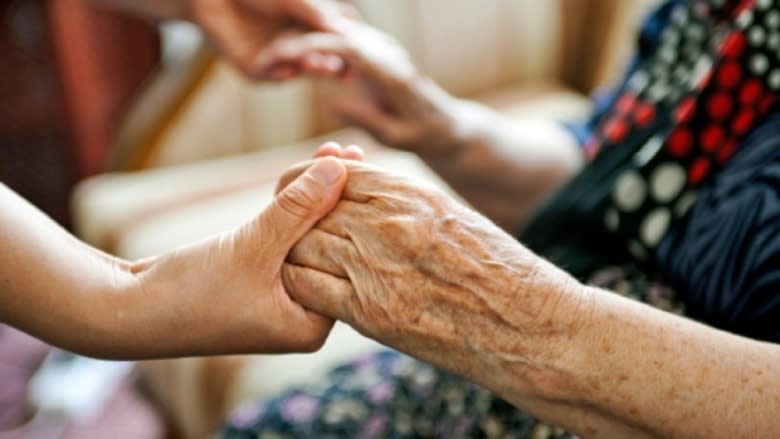Patients' advocate slams decision to allow cameras in Quebec long-term care homes
A prominent Quebec patients' rights advocate is panning a recent government decision to allow the installation of cameras in the rooms of residents of provincially funded long-term care institutions (CHSLDs).
The new rules would allow the presence of cameras in order to ensure the residents' safety and quality of care — notably, to expose a case of mistreatment.
The cameras can be installed without the permission of a CHSLD's staff and administration.
The decision was hailed by the Regroupement provincial des comités des usagers, a provincial body that advocates for patients. That group's executive director, Pierre Blain, said he was happy residents would be able to decide for themselves whether a camera is needed.
"It's someone's home, and at home, we can do what we want," he said.
However, the head of the Quebec Council for the Protection of Patients, Paul Brunet, said he fears the cameras will absolve the institution's administrators of having to follow up on complaints and punish employees.
"How about better training, better supervision, better follow-up on sanctions and families' denunciations? They won't have to do that. Just install a camera," Brunet told CBC Montreal's Daybreak.
"That's the irony and the sadness and the risk we're all incurring now."
'A cheap way out'
According to the rules, which were published in Quebec's official Gazette Wednesday, residents can choose whether to conceal the cameras in their rooms. The rules are expected to come into effect sometime before the end of the year.
Other rules include:
- The camera can't be used to capture images and sounds from outside the user's room.
- The camera also cannot capture images from a bathroom, unless it's justified.
- When it is installed in a shared room, the camera cannot be used to capture images or sounds of the other residents.
- The camera must be removed if its use is no longer necessary for the purposes sought by its installation.
Brunet acknowledged it is possible that having cameras in rooms will curtail instances of obvious abuse, but he said they won't create a serene, safe setting.
He said being constantly watched will put everyone on edge and create a fraught work and home environment for both CHSLD employees and residents.
"This is an easy way out for the administrations. It's a cheap way out."
Jeff Begley, president of the Fédération de la santé et des services sociaux, which represents the majority of CHSLD workers, said a number of employees are worried about how the images will be used.
If they are wielded as a way to constantly threaten workers, "that worries us," he said. However, if the cameras are intended to improve things for patients, that is a positive move.
"This is not a magic bullet, we have some concerns," said Begley. "But it is 2017, and there are cameras everywhere in society now, and if this could help prevent even one case of mistreatment then it's worth it."



